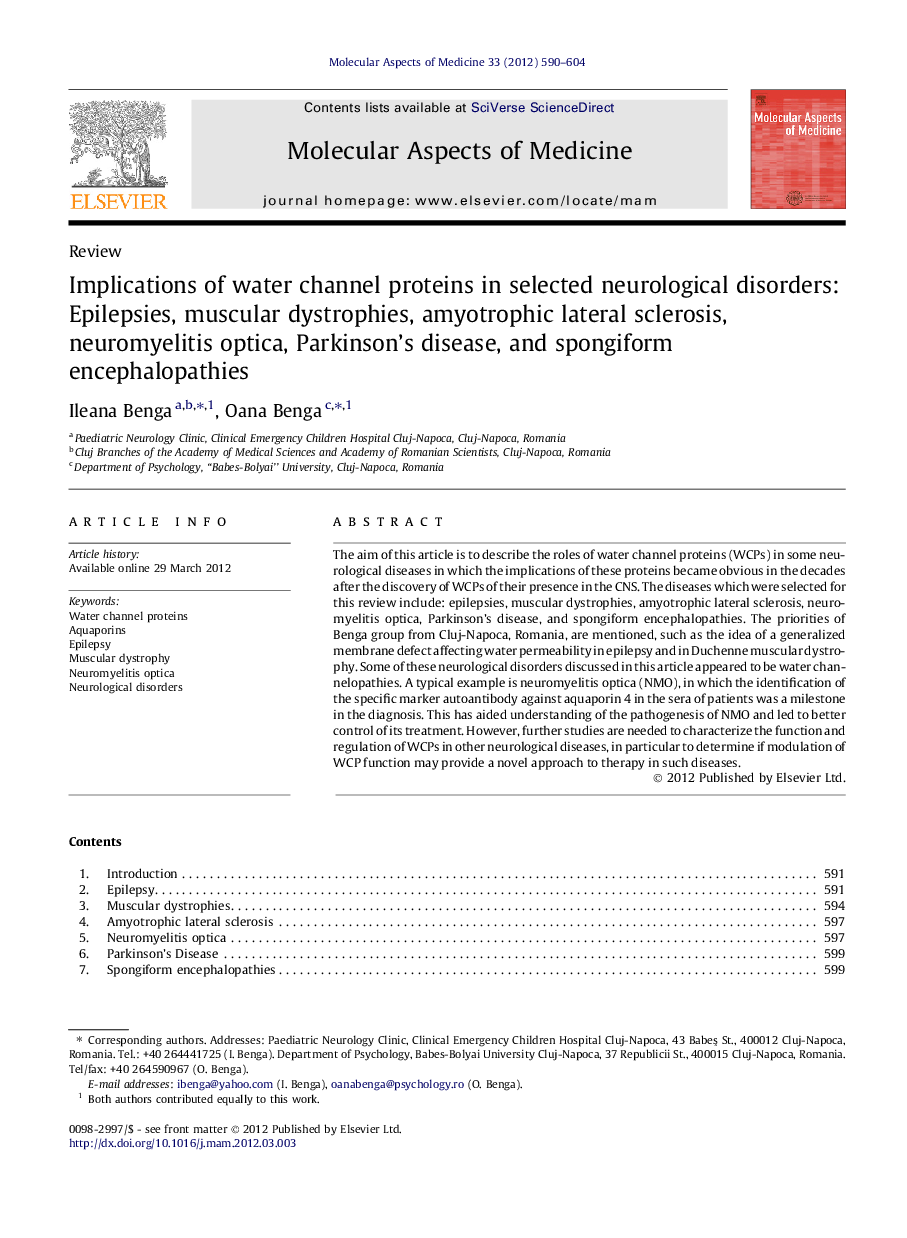| Article ID | Journal | Published Year | Pages | File Type |
|---|---|---|---|---|
| 1995795 | Molecular Aspects of Medicine | 2012 | 15 Pages |
The aim of this article is to describe the roles of water channel proteins (WCPs) in some neurological diseases in which the implications of these proteins became obvious in the decades after the discovery of WCPs of their presence in the CNS. The diseases which were selected for this review include: epilepsies, muscular dystrophies, amyotrophic lateral sclerosis, neuromyelitis optica, Parkinson’s disease, and spongiform encephalopathies. The priorities of Benga group from Cluj-Napoca, Romania, are mentioned, such as the idea of a generalized membrane defect affecting water permeability in epilepsy and in Duchenne muscular dystrophy. Some of these neurological disorders discussed in this article appeared to be water channelopathies. A typical example is neuromyelitis optica (NMO), in which the identification of the specific marker autoantibody against aquaporin 4 in the sera of patients was a milestone in the diagnosis. This has aided understanding of the pathogenesis of NMO and led to better control of its treatment. However, further studies are needed to characterize the function and regulation of WCPs in other neurological diseases, in particular to determine if modulation of WCP function may provide a novel approach to therapy in such diseases.
